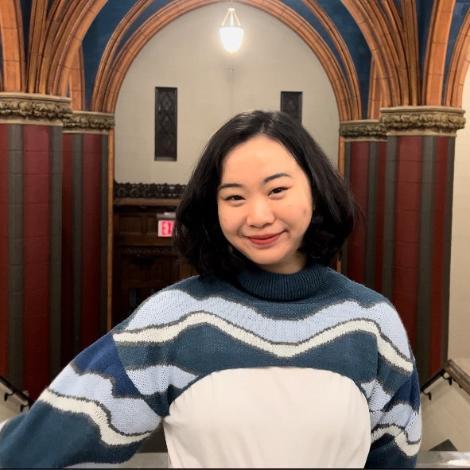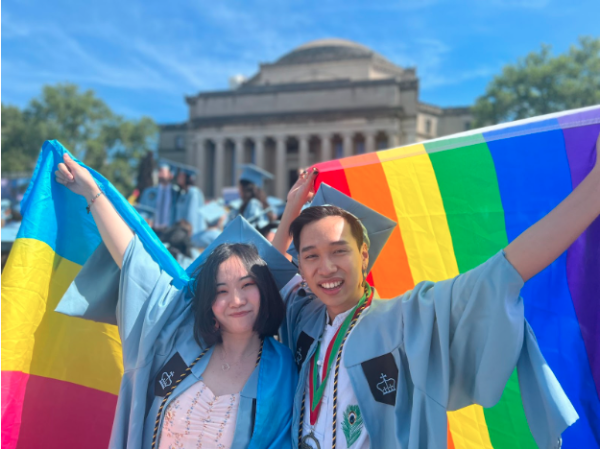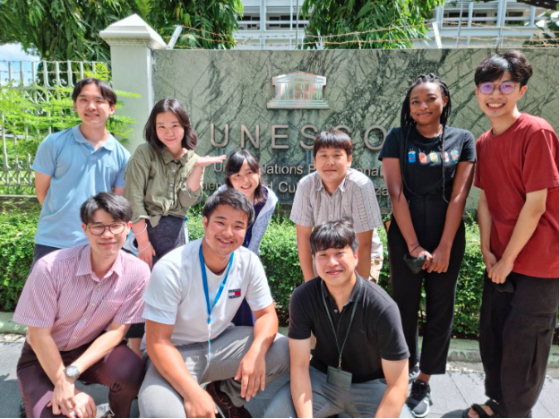
How did you first become interested in international education development and comparative education?
Personally, I am a beneficiary of international educational development - my path of education mobility from an underdeveloped small town to a mega city in China, then to taking on government-collaborated scholarships in Singapore for high school, going to the Netherlands for my undergrad, and ending up in the U.S. for my master's, illustrates many real-life intertwining examples of international educational development. I majored in political science and public policy when I was an undergrad student and that became my lens of reflecting and comparing the education systems I have experienced and others across the world. The intersections between politics/policies and education have always been my interest. I researched and explored topics such as the internationalization of higher education, policy borrowing in education, international development and aid on education, etc. Before coming to TC, I also co-founded my education development NGO back in my hometown, volunteered with UNICEF for two years, and worked with a small-scale Dutch donor agency that specializes in educational projects. Through these experiences, not only did I gain different perspectives from different actors/stakeholders in international education development, but I was also able to put to use my academic and practical experiences constantly. Therefore, I have decided to join the IED program at TC to further my technical skills and knowledge in this field.
What were the most challenging and rewarding parts of your time at TC?
The most rewarding part of my time at TC is to be able to combine, or actually immerse my personal interests into all coursework and other experiences, and learn from such explorations and interactions as much as possible. Instead of a geographical focus, I chose to have a topical focus on gender-related issues in educational development and policies from a comparative perspective across regions. I have incorporated topics from gender-based violence curriculum, gender mainstreaming in education sector plans, reproductive rights and NGO mobilization, teenage pregnancy, and school management, to women's leadership development, in most of my coursework. I also chaired the student organization of Empower Asian Women at SIPA, organized gender awareness reading clubs, engaged and connected with the Chinese feminist/activist community through an alumna, and worked as a graduate mentor of a female leadership program at SUNY which is also managed by our alumna. By working on such topics, exchanging ideas, liberating my perspectives, getting feedback, and learning from the faculty, colleagues, and students, of which many are amazing and inspiring women including my supervisor Gita Steiner-Khamsi and Constanza Lafuenteit, was a steep learning curve for me both personally and professionally.
The most challenging part was probably starting the first year of the program remotely during the pandemic in 2020 - limited face-to-face engagements, changing modality of teaching, timetables mismatching the timezone, etc. After having spent the whole year online, when our cohort came back to campus, we all feel a strong synergy amongst us.

How did your experience at TC prepare you for your career?
TC's journey has definitely helped me a lot in preparing for my career, not only in terms of theoretical knowledge and technical skills necessary in this field but also in many opportunities that allow me to think and act on my feet. I took some really helpful courses within the department that trained my skills in education sector policy planning (ITSF 5006) and NGO management in international educational development (ITSF 4105). There are also opportunities to take courses outside of the department and I took a number of courses from the education policy department, such as EDPS5646 Evaluation of Education and Social Programs and EDPP6540 Politics & Education. In terms of professional development, TC’s faculty and alumni network are great assets. For example, I was engaged in a UNESCO-mandated research project with Professor Gita Steiner-Khamsi and involved in some other development projects by UNHCR, Plan International, and some other foundations, through TC's alumni network. Even when I was trying to reach out to some alumni online, a lot of them have been really generous to offer help. Moreover, TC being part of the large Columbia community has provided a myriad of opportunities.

Can you share about your experience working at UNESCO Bangkok, Kabul, and Windhoek? In what ways has your time with UNESCO broadened or deepened your understanding of comparative and international education?
I started as an intern in the education policy and planning team under Inclusive Quality Education and my main responsibilities include creating technical outputs and managing projects in areas of education policy and management in the Asia-Pacific region. One of the major projects that I took lead on was to draft and develop the Asia-Pacific SDG4 Midterm Review Guidelines as a follow-up to the second Asia-Pacific Regional Education Ministers’ Conference. I am also happy to reconnect NORRAG/KIX EAP with UNESCO Bangkok for the Education Policy Innovation Conference 2023. I have also provided technical support to UNESCO Kabul on the Afghanistan Interim Teacher Competency Framework, which is the project I was later hired for as a consultant after my internship. Last December, I joined the UNESCO Windhoek office in Namibia to continue my work in UNESCO education programming, where I work now more on the country level. My time in UNESCO has provided me with unique insights into the education system and governance through exploring different approaches of each office, e.g. regional office vs. field office, emergencies context considerations. Working with amazing supervisors and colleagues who are experienced in the field has also been something I really appreciate.
What advice would you give to our current and prospective students?
I would like to encourage everyone to be active and engage with their supervisors, professors, fellow classmates, and the TC community. Don’t be afraid to reach out and talk to people as they all come from different backgrounds and carry diverse experiences. I am learning a lot from such exchanges and interactions. I would also like to invite everyone to constantly reflect and look back on the education we received, the privileges we have, and the responsibilities we have with this new knowledge. I urge future and current students to realize that not everyone is given the same opportunity and with the tools you garner at TC it is up to you to use them wisely.